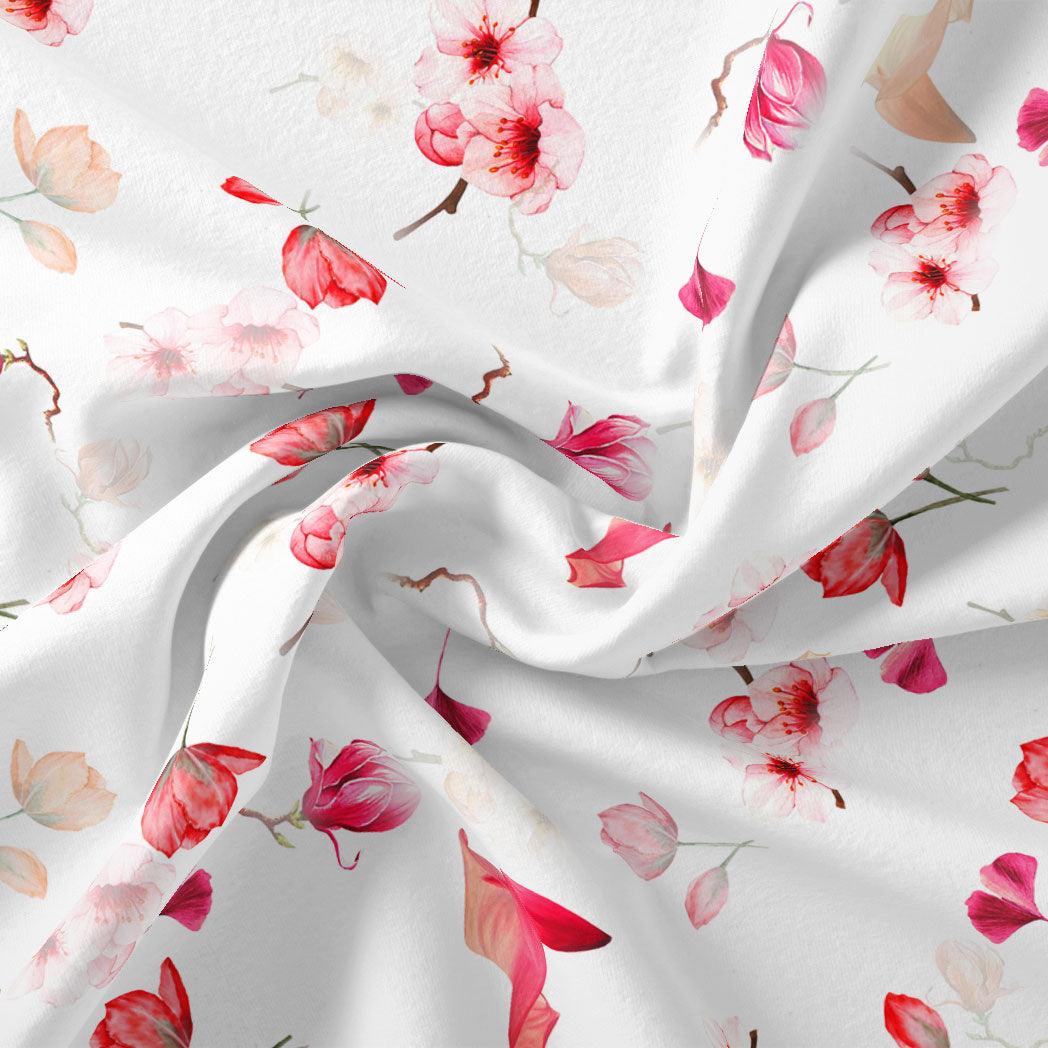Cotton fabric is a natural textile made from the fibers of the cotton plant. The cotton fibers are spun into yarns, which are then woven or knitted to create fabric. Cotton is known for its breathability, softness, and absorbency. It is versatile, hypoallergenic, and has been used for centuries in textiles worldwide.
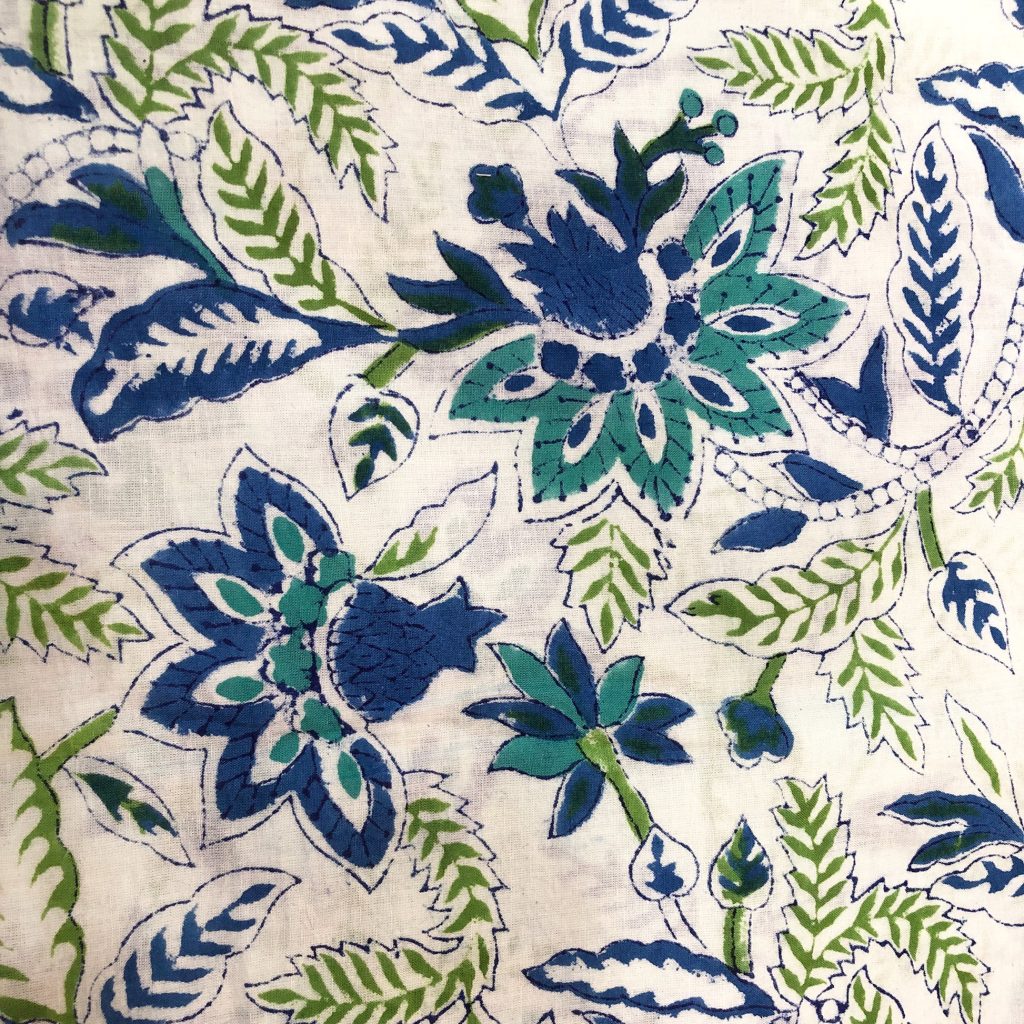
How It’s Made:
- Harvesting: Cotton fibers are harvested from cotton plants, usually by hand or machine. The fibers are separated from the seeds using a cotton gin.
- Spinning: The cotton fibers are then spun into yarns, which can vary in thickness depending on the type of fabric desired.
- Weaving/Knitting: The yarn is woven into fabric through either a weaving process (interlacing threads at right angles) or a knitting process (looping yarns together).
- Finishing: The fabric undergoes finishing processes such as dyeing, bleaching, and sometimes softening treatments to enhance the look and feel of the fabric.
Pros of Cotton Fabric:
- Breathable: Cotton allows air circulation, making it ideal for warm climates and active wear.
- Softness: It is naturally soft and comfortable against the skin, making it suitable for daily wear.
- Hypoallergenic: Being a natural fiber, cotton is less likely to cause allergic reactions, making it suitable for sensitive skin.
- Absorbent: Cotton absorbs moisture, which is perfect for humid or hot conditions.
- Eco-friendly: It is biodegradable and produced from a renewable resource (the cotton plant).
- Durability: Cotton fabric can be strong and long-lasting with proper care.
Cons of Cotton Fabric:
- Wrinkling: Cotton wrinkles easily, which may require ironing and maintenance.
- Shrinkage: Cotton fabric can shrink after washing, especially if not pre-washed before use.
- Tends to Fade: Over time, cotton may lose its color intensity due to washing and exposure to sunlight.
- Not Water-resistant: Cotton fabric does not retain water resistance, which makes it less suitable for outdoor gear.
- Prone to Stains: Cotton is absorbent, so it can stain easily from oils and other substances.
Popular Women’s Dresses Made from Cotton Fabric:
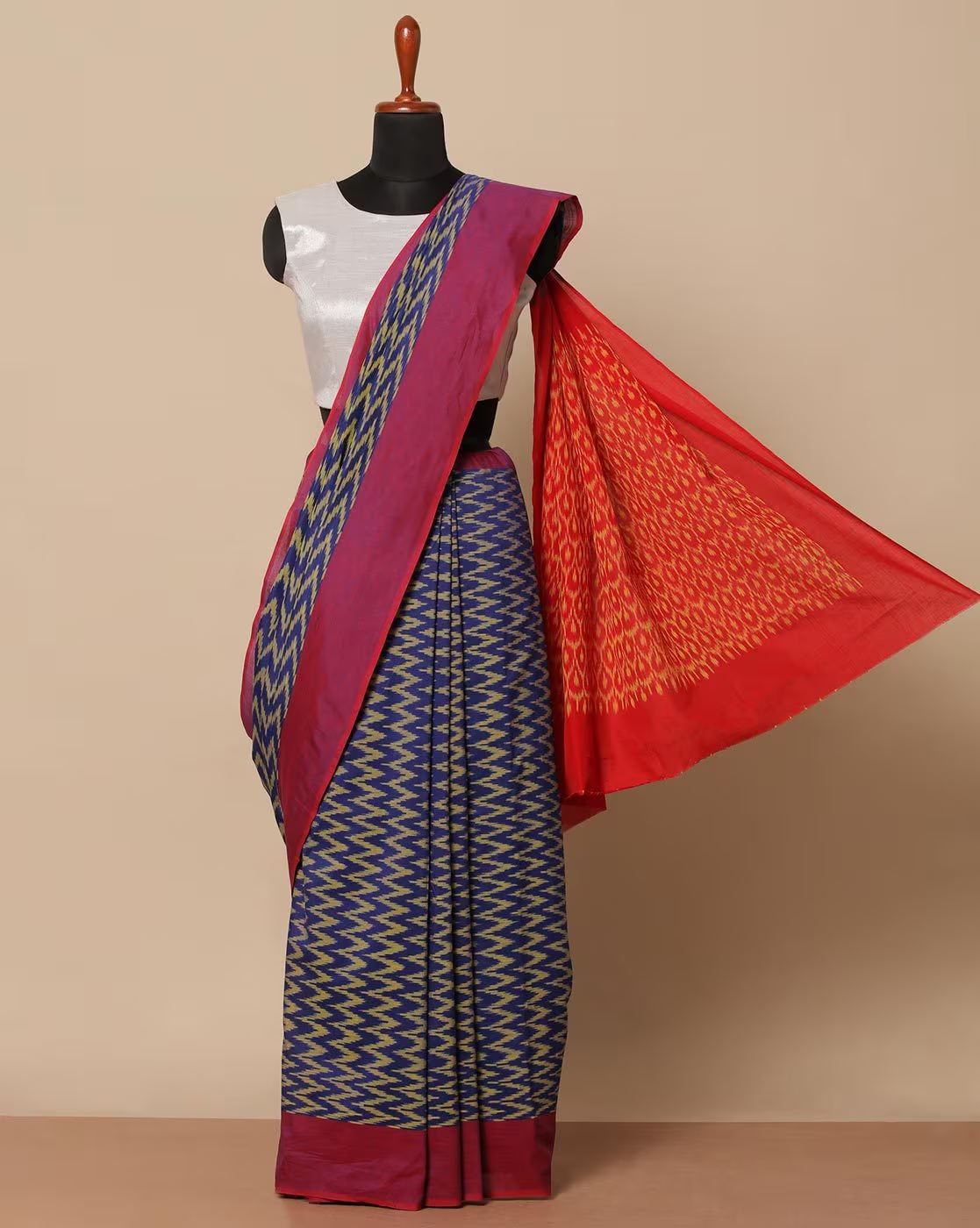
Sarees and Kurtis: In India, cotton is widely used for traditional attire such as cotton sarees, kurtis, and salwar kameez sets. The fabric is chosen for its comfort, especially in hot climates.
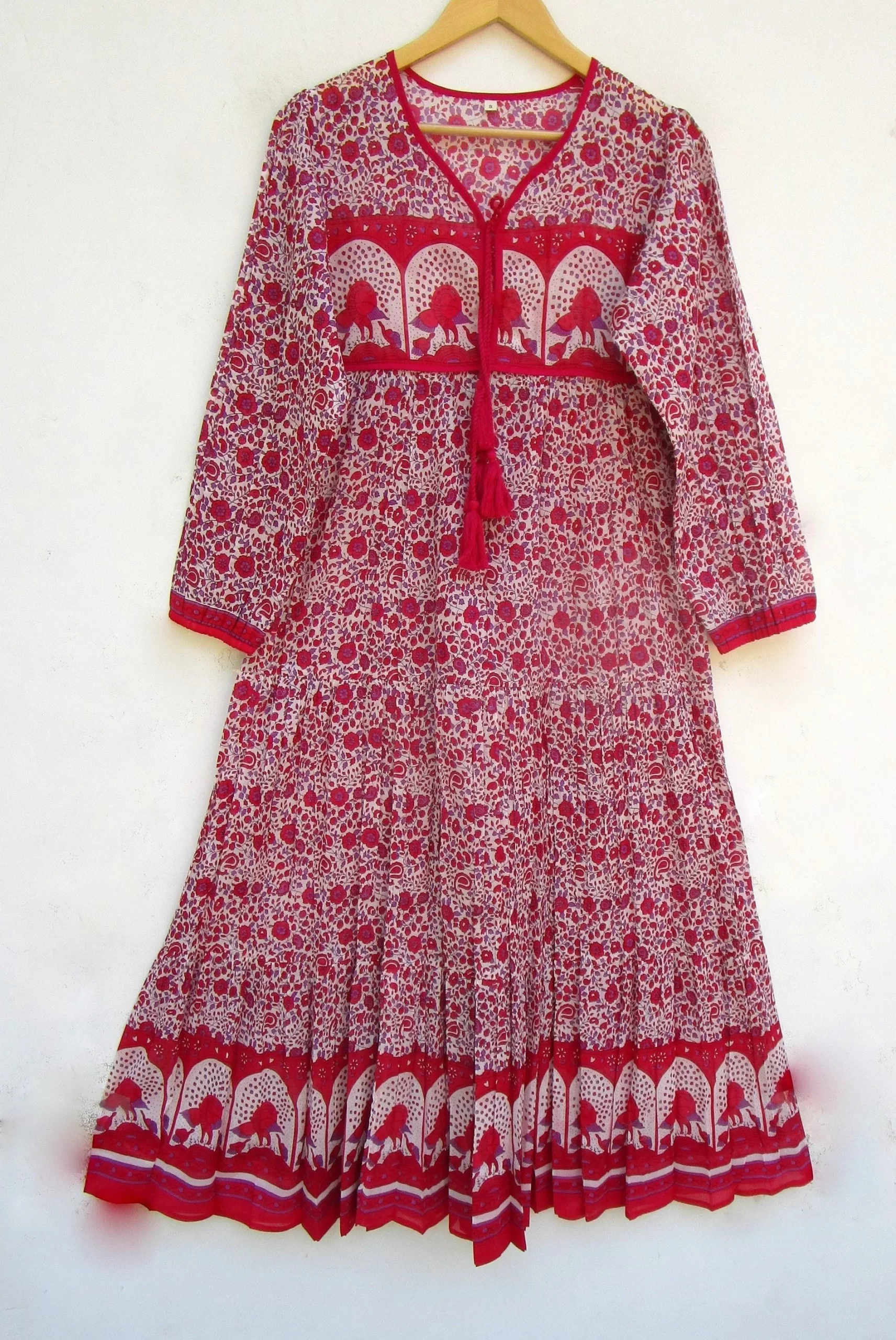
Maxi Dresses: Cotton maxi dresses are ideal for summer or beach wear due to their lightness and comfort.
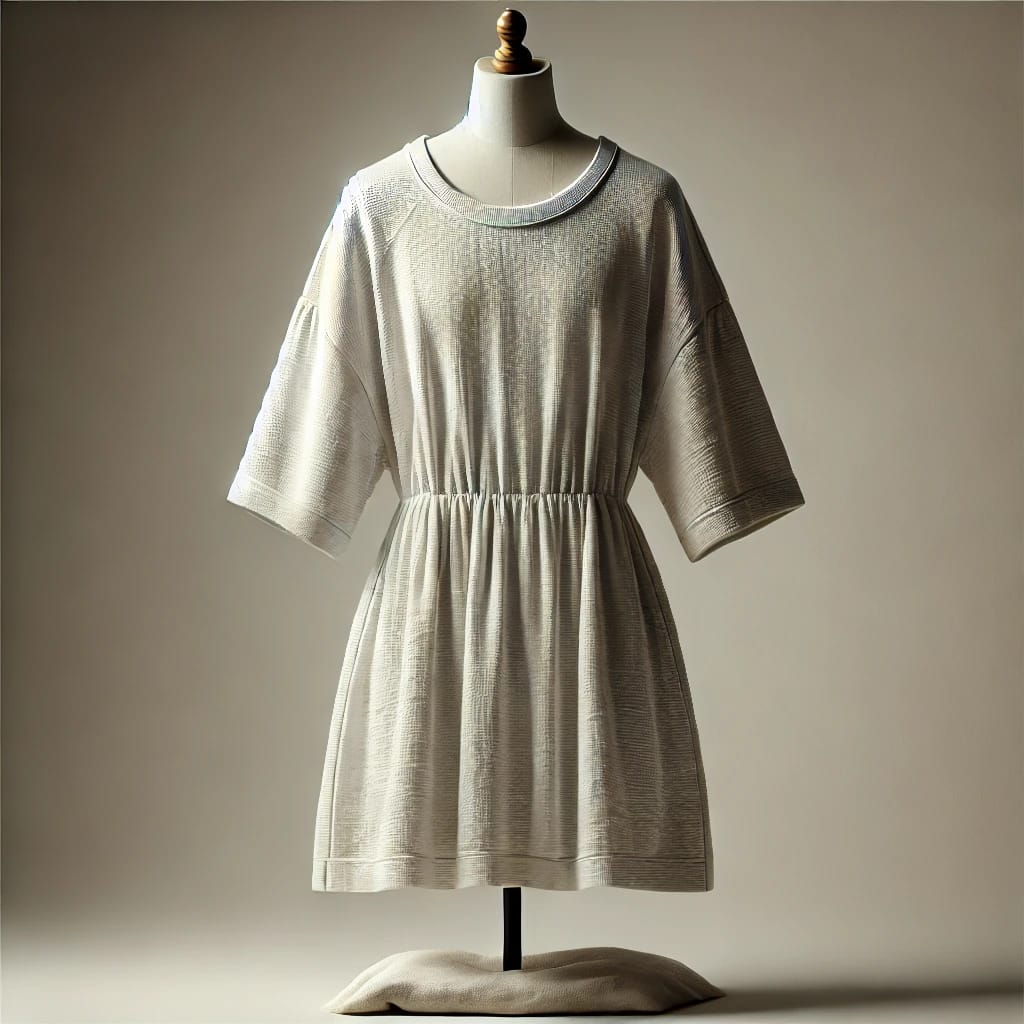
Casual Dresses: Cotton is commonly used for casual dresses, from sundresses to shift dresses. Its comfort and breathability make it a perfect option for everyday wear.
Contemporary Trends in India:
- Sustainable Fashion Movement: Cotton is increasingly popular in India due to a growing preference for sustainable and eco-friendly fabrics. Organic cotton and handloom cotton are becoming more popular as consumers look for ethical, eco-conscious choices.
- Fusion Wear: In modern fashion, cotton is often used in fusion wear, blending traditional Indian silhouettes like kurtis, lehengas, and sarees with contemporary Western cuts. Cotton is being used to create fusion pieces for both ethnic and casual wear, reflecting the evolving fashion sensibilities of young women.
- Handloom Cotton: Traditional handloom cotton, particularly from regions like Khadi (handspun, handwoven cotton), has seen a resurgence in India. There is a rising interest in supporting local artisans and promoting sustainable practices, making Khadi a popular choice for both casual and formal wear.
- Printed Cotton Fabrics: Cotton prints, especially floral, block prints, and ikat, are being widely used in contemporary women’s fashion in India. Designers often incorporate these into dresses, kurtis, and sarees, celebrating India’s rich textile heritage while keeping it modern.
- Smart Textiles: The growing popularity of “smart textiles” in India is contributing to innovations in cotton-based fabrics. Some modern cotton textiles are being engineered to be more resistant to wrinkles, stains, and shrinkage, increasing their appeal for both casual and professional wear.
- Ethical and Handcrafted Fashion: There is a growing trend for supporting artisans and small-scale manufacturers. The rise of the “Make in India” initiative and the focus on handmade cotton garments supports local craftsmanship and gives a boost to traditional cotton fabric.
- Comfort in the Workplace: With workwear being more casual post-pandemic, cotton fabrics are increasingly being chosen for office wear, as they combine comfort and style. Cotton blazers, shirts, and dresses are commonly seen in corporate environments in India.
Shop exquisite Cotton Fabrics for women in Kota, Rajasthan. Explore premium collections at Aakar Fabrics. Perfect for Sarees and Kurtis, Maxi dresses, and Casual dresses.
